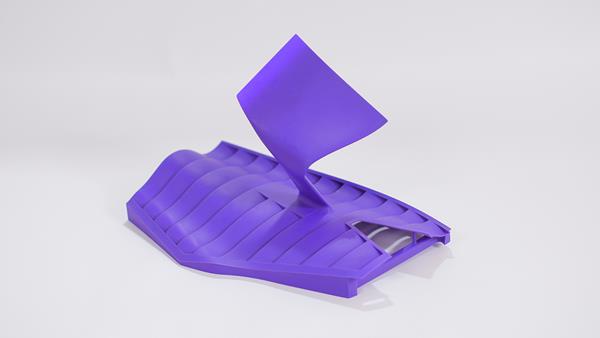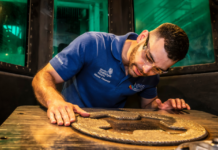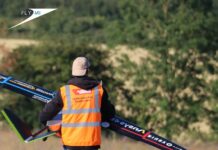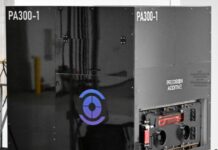
With the goal of advancing wind tunnel in motorsports applications, 3D Systems joined forces with Alpine F1 Team (formerly Renault F1 Team) to develop Accura Composite PIV, a material that can produce rigid parts in a high-contrast colour optimized for PIV testing.
The announcement follows the recent release of four 3D Printing resins in its Figure 4® portfolio.
As the needs of PIV testing applications are primarily targeted here, it should be noted that 3D printing wind tunnel parts for aerodynamic testing is virtually a 24/7 operation, as the racing team is continuously looking to unlock new levels of performance in the car.
Although AM applications for Formula 1 teams are often highlighted with metal AM or industrial FFF, it is interesting to learn the capabilities of industrial SLA for motorsports applications. In this case, the technology can enable the production of rigid aerodynamic parts with high productivity like integrated pressure tappings.
3D Systems explains then, that these parts are leveraged in testing that relies on a laser-based technology known as ‘particle image velocimetry’ or PIV. One challenge with taking reliable PIV measurements is the reflections of laser light from background surfaces other than the airborne particles, which reduces the image quality resulting in a loss of useful information.
Several testing applications of the new Accura Composite PIV by Alpine F1 Team reveal that the SLA material is effective in reducing the laser reflection effect. Furthermore, the use of this system is helping their aerodynamicists gain a greater insight into the aerodynamic characteristics of the wind tunnel model, ultimately helping them deliver a faster racing car to the track.
The workflow to produce wind tunnel parts in other currently available materials often requires a multi-step process to achieve a suitable finish required for wind tunnel testing. The unique colour of Accura Composite PIV provides the possibility to eliminate some of these steps and therefore compress the workflow for efficiency and throughput gains.
“We’ve proudly collaborated with 3D Systems for many years,” said Pat Warner, advanced digital manufacturing manager, Alpine F1 Team. “The deep expertise of their application engineers and their industry-leading solutions have been an invaluable part of our innovation team. It’s been exciting to co-develop Accura Composite PIV and see the benefits it’s bringing to our process. We produce nearly 500 parts per week for wind tunnel testing. Due to the material’s unique optical characteristics, we are now collecting more reliable data from our PIV system in the wind tunnel.”
Key characteristics of the new material that we will keep in mind, therefore include, high tensile and flex modulus, with a heat deflection temperature of 100° C – ideal to withstand the rigors of wind tunnel testing – . Not to mention that, like all other resins processed on 3D Systems’ SLA technology, its utilization requires the use of the company’s 3D Sprint® software.
“Customer-centric innovation is a guiding force within 3D Systems,” said Kevin Baughey, segment leader, transportation & motorsports, 3D Systems. “Working with Alpine F1 Team to develop our newest material is another example of how we’re leveraging our F1 application expertise to develop advanced solutions that give our customers a competitive edge. We’ve been impressed by the results the Team has experienced in the wind tunnel, and look forward to seeing their success on the circuit this season.”
Remember, you can post free of charge job opportunities in the AM Industry on 3D ADEPT Media or look for a job via our job board. Make sure to follow us on our social networks and subscribe to our weekly newsletter : Facebook, Twitter, LinkedIn & Instagram ! If you want to be featured in the next issue of our digital magazine or if you hear a story that needs to be heard, make sure to send it to contact@3dadept.com





